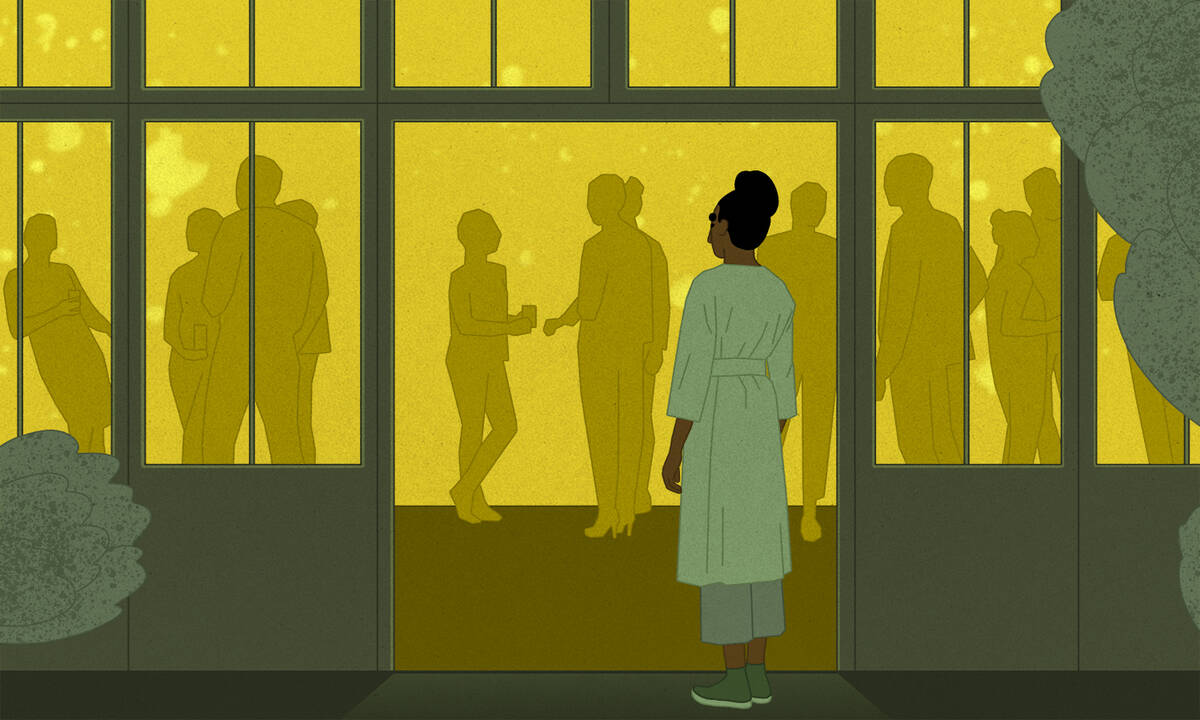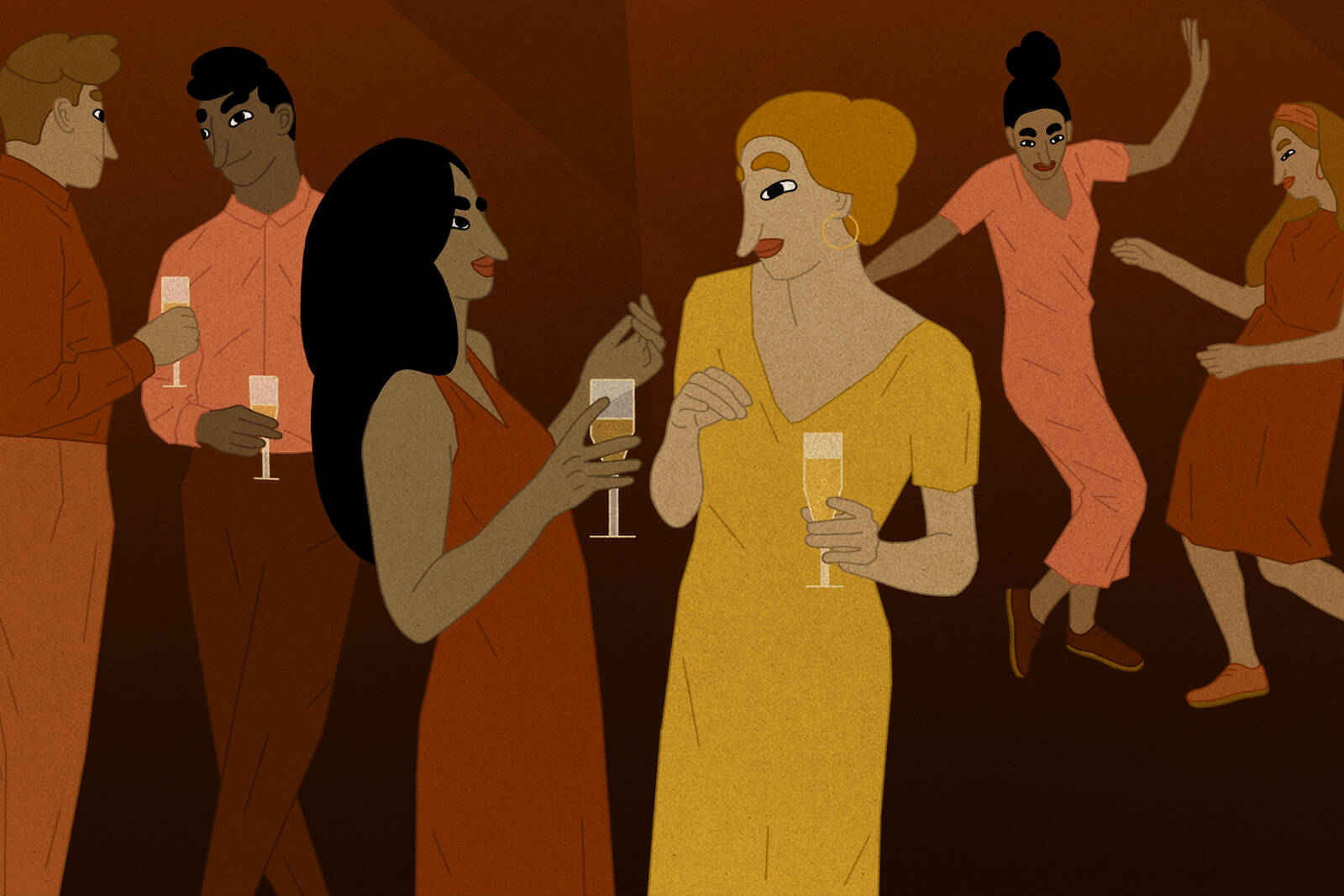But regardless of where you stand, our faculty are full of helpful advice. They also discuss several social and psychological factors involved in networking—so you can assess your own approach and change it if you need to.
When reaching out to your existing social network with a particular goal in mind, such as soliciting help with a job hunt or advice on making a career pivot, it helps to be precise.
Ellen Taaffe recommends that you always start with a specific request for those to whom you are reaching out. “Avoid the dreaded question, ‘Can I pick your brain?’” Taaffe says. “This signals that you haven’t taken the time to focus your thoughts. You need to make it easy for busy people to know how to help you.”
Taaffe also suggests making your conversation forward-looking. You will have more success asking someone in your network for a 30-minute meeting to hear about their transition from sales to marketing—and how you can learn from it—than to use meetings to rehash where things went wrong at your last job.
“What happened in the past should be about 10 percent of the conversation,” Taaffe says, “while 90 percent should be about what’s next, what you’re looking to learn, and how you’d like to make an impact.”
Not all networking is with our existing network. Many of us find ourselves in rooms full of strangers, looking to make a good impression.
One way to do this is to have an amazing answer when you are inevitably asked,“What do you do?”
“It’s the most common question you get asked in your life, period,” says Wortmann. Yet, many people never take the time to compose the answer to this fundamental question. It’s important to be ready with a clear, concise, and compelling response, which will help people connect to you and your motivations. “Why not take an opportunity to say something interesting?”
Instead of simply stating your profession—“I’m an accountant”—add a short tag line or pitch. When Wortmann launched his most recent company, his movie trailer became, “I run a firm called Sales Engine. We help companies build and tune their sales engine.” In two sentences, he was able to give the name of the company, his position, and the purpose of the business.
This “movie trailer of you,” as Wortmann calls it, is a handy tool for initial discussions with potential clients or investors. It is helpful also to tweak your trailer for different contexts. If you are an educational consultant, you may have a social version—for times you do not want to talk shop—and a slightly more nitty-gritty version for networking at an education conference.
“It’s not really about the length of your response, but its context. For example, the Superintendent of Detroit Public Schools is going to have a different level of understanding—and interest in—certain details.”
Not everyone is a fan of networking.
A study by the late Ned Smith, who was an associate professor of management and organizations, looked at why seasoned professionals seem to be more comfortable actively reaching out to their networks than their more junior colleagues. After all, junior professionals often stand to gain the most from networking, so they’re doing themselves no favors if they’re networking-averse.
“We sensed this disconnect between who actually needs to be doing the networking behavior the most, and who is actually doing the networking behavior the most,” says coauthor Jiyin Cao, who earned her PhD from Kellogg and is now at Stony Brook University.
Smith and Cao explored why this is the case. First, they confirmed that higher-status people have larger networks and are more likely to work to broaden those networks. But, critically, they found that the differences between low- and high-status individuals actually hinged on something else: whether people considered status to be an indicator of quality. When people attributed their own high status to their talent and hard work, they were particularly eager to network because they were confident they had value to offer and that others would be receptive to their outreach.
“Higher-status people think, ‘I’m not just networking; I’m offering value to you,’” Cao explains. “They don’t feel like they’re taking advantage of their networking partner, which makes them come across as more authentic.”
Of course, the opposite is also true: lower-status individuals who feel they have little to offer others are less likely to network.
For those people, Cao advises to “think about the value you bring to this relationship. If you know you have value to bring to the relationship, you will feel more comfortable about doing this type of work.”
So social status affects how people generally approach networking. Another study by Smith and Leigh Thompson, a professor of management and organizations, shows that status also affects how people network when they really, really need to: when they’re at risk of losing a job.
Smith, Thompson, and coauthor Tanya Menon, at The Ohio State University, found that those who identify as having high social status tap into broader social networks when faced with the prospect of job loss than those who regard themselves as low-status individuals.
Accordingly, “If I’m a high-status person under a threat, I’ll be in a better position potentially to find the next job than a low-status person under threat,” Thompson says.
The difference does not reflect differently sized support networks. Rather, the research shows that higher-status job seekers typically reach out to a wide range of contacts, including individuals they met only occasionally in their work lives. Low-status people, by contrast, tend to share their situation with only their closest associates, such as family members and old friends.
“When people who perceive themselves as having high status face job loss, they remember the weak ties more than they otherwise would have,” Smith says. This is important because weak network ties are key sources of job-related information. “Low-status people under the same threat have exactly the opposite response; they go to dense, strong ties.”
While it’s true that everyone should be networking, that doesn’t mean it’s a one-size-fits-all activity. Different types of people need to form different sorts of networks.
This is true for men and women hoping to land top jobs, according to research from Brian Uzzi, a professor of management and organizations, and colleagues.
The researchers analyzed social-network and job-placement data for graduates of an MBA program. For men, the most significant factor affecting job status after graduation was how “central” they were in their networks—that is, with how many highly connected people they have relationships.
Successful women also tended to be more central, but that alone was not enough to land them a top job. The most successful women often had a tight-knit circle of female colleagues as well.
The reason may come down to the types of information that men versus women need to succeed. Presumably, having numerous connections provides access to what the researchers call “public information,” such as which companies are hiring and which types of candidates they’re seeking. For men, that alone may be enough to land a good job.
Women, however, also need “private information,” which may include insider tips about a company’s leadership culture and politics, or hints about how to make an impression in a male-dominated industry.
Women are only likely to put faith in such private information when it comes from trusted contacts. Furthermore, only fellow women can provide the sensitive, gender-specific information that will be useful in a career context—hence the benefit of having connections who are both close and are women.
“You need that private information to understand how to negotiate within a world where you’re being held to different standards,” Uzzi says.




